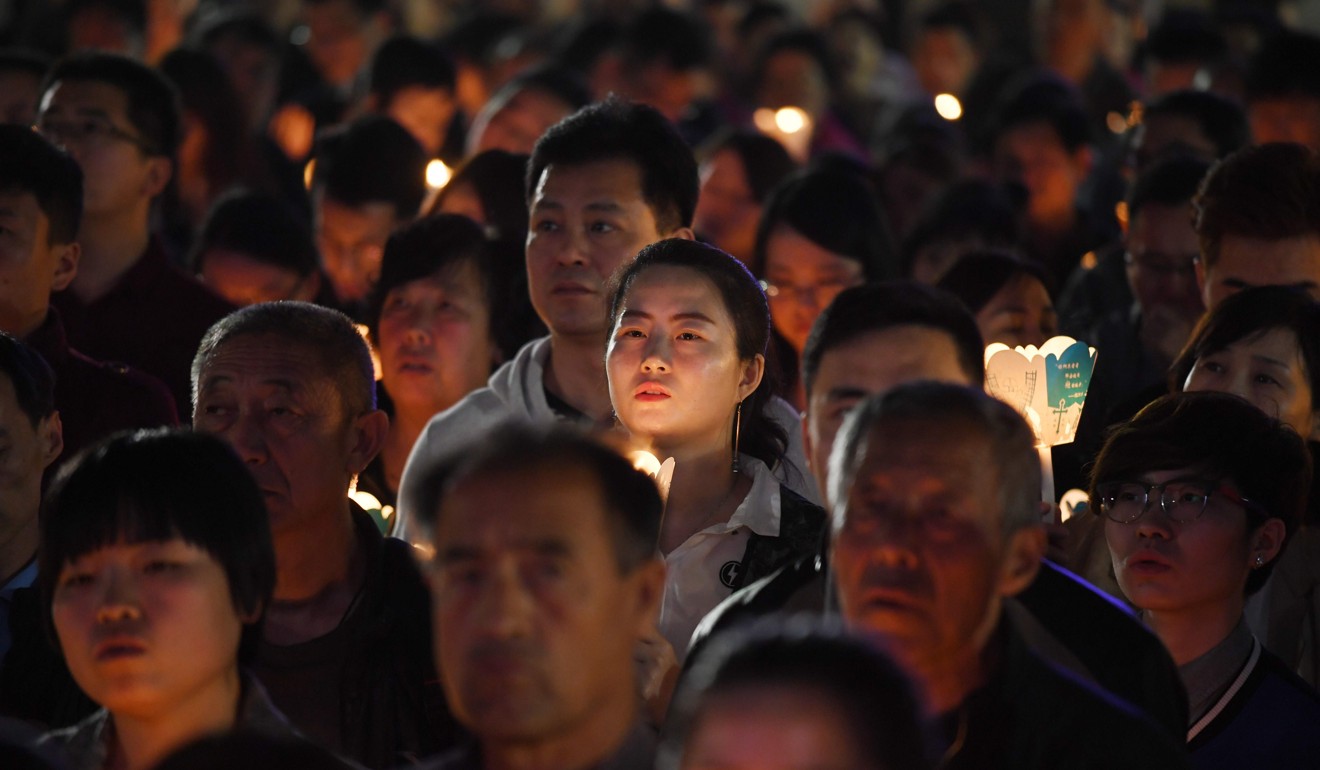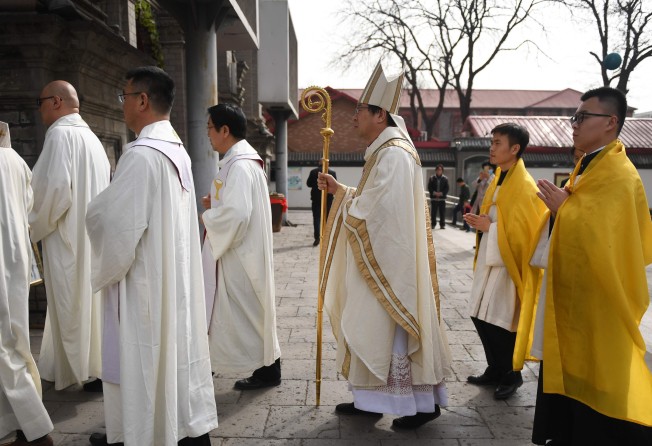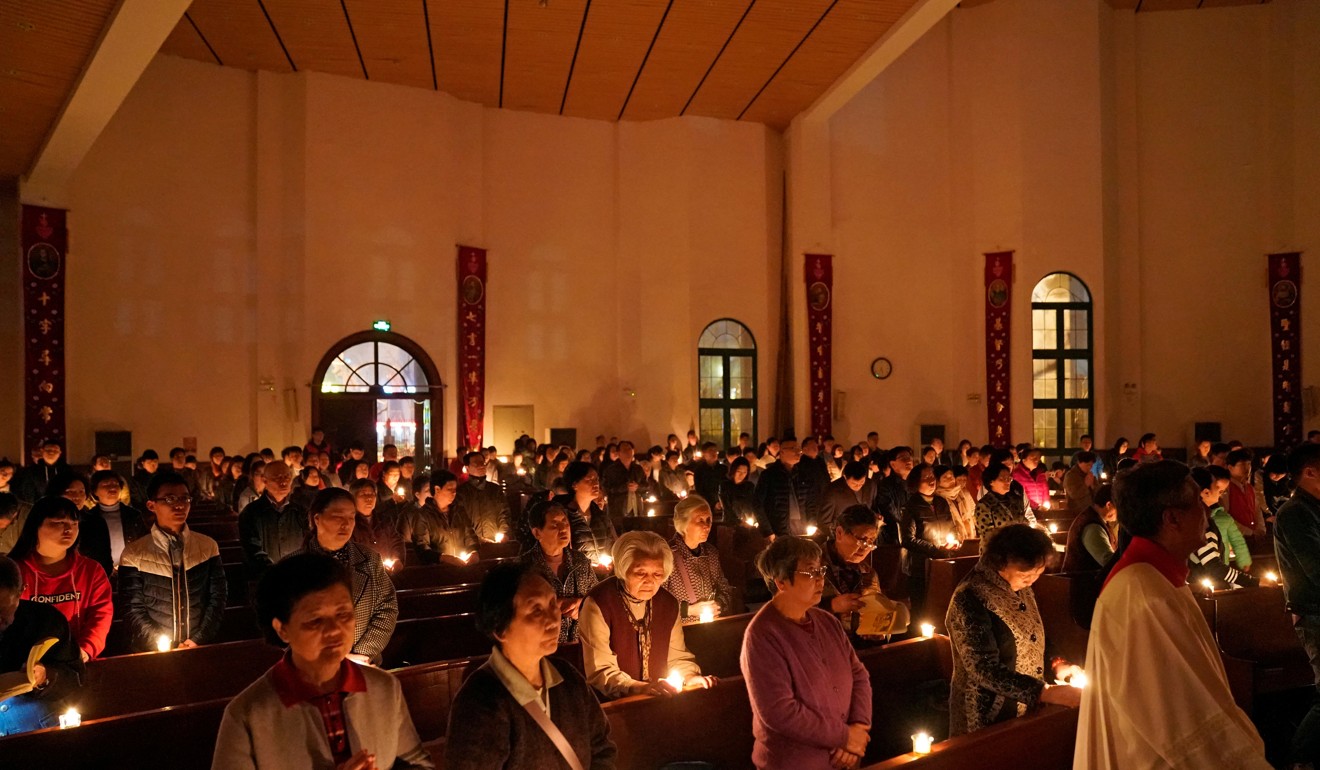
Controversial bishops deal could still be on track after Beijing signals it hopes for progress in Vatican talks
Communist authorities confirm commitment to reaching agreement on issue that has sent shock waves through Catholic communities in China

China has confirmed its commitment to reaching a deal with the Vatican over the appointment of bishops after an anticipated agreement that caused huge tensions within the Catholic Church failed to materialise before Easter.
Striking a conciliatory tone on Tuesday, a spokeswoman for Beijing said the talks had been “proactive and in-depth” and the Chinese authorities hoped future discussions would prove “constructive”.
Reports that the two sides had been negotiating surfaced in recent months. Some sources suggested that the Vatican would give up its own bishops and accept government-appointed ones – including some who had been excommunicated by the Holy See – sending shock waves through both the state-approved and underground churches, and prompting accusations of betrayal from some senior figures.
Despite expectations that the two sides would reach a deal before Easter, the Vatican clarified last week that there would not be any “imminent” deal.
“China and the Vatican have been in contact, we have also proactively engaged in in-depth discussion over certain issues,” Xiao Hong, a former spokeswoman for the State Administration for Religious Affairs, said on Tuesday.
“We are willing to move together with the Vatican towards the same direction, to advance constructive dialogues together, and to continuously work together to improve our relations.”
The appointment of bishops has long been a bone of contention between Beijing and the Vatican.
After the two sides severed ties in 1951, the Catholic Church in mainland China split between the government-sanctioned branch where bishops were appointed by the state – sometimes without the tacit approval of Rome – and the underground churches that remained loyal to the Vatican.

Asked at the Tuesday press conference if it was Beijing that was delaying the agreement, Chen Zongrong, a former deputy head of the religious administration, said both sides wanted to improve ties and the Chinese government was also taking concrete efforts. He did not specify what the final unresolved hurdles were.
“Currently, China and the Vatican have smooth and effective communication channels to discuss any issue,” Chen said.
“We also hope the Vatican and the Chinese government can meet halfway and take further steps in improving our relations.”
Father Chang Sang-loy, a Hong-Kong-based priest with knowledge of the talks, said Beijing’s willingness to work with the Vatican for an agreement was “a progression and a step forward from before.”
But the Vatican’s shift in policy has also met with fierce criticism, including from Hong Kong-based Cardinal Joseph Zen Zekiun, who accused the Church of “selling out” China’s underground worshippers.

The government department that oversees religious affairs was recently merged into a Communist Party department and Chen said the restructuring had not yet been completed.
The body’s leadership team was only unveiled at the weekend and the exact roles and responsibilities of senior officials within the department – including Chen – have yet to be finalised.
“My original job title no longer exists, but my new title has not been decided yet,” Chen said.
Beijing approved a major overhaul to the Communist Party and state agencies at a meeting in late February, the details of which were revealed in mid-March.
Under the plan, the State Administration for Religious Affairs was absorbed by the party’s Central United Front Work Department, which mainly handles relations with non-party organisations and individuals.
The work department will also absorb another government department for overseas Chinese liaison, and has taken over from the cabinet in overseeing the government commission on ethnic minorities.